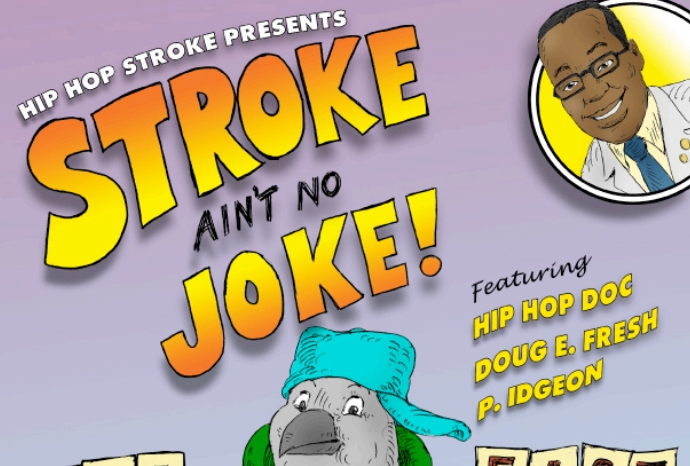A revolutionary intervention uses hip hop music combined with stroke education lyrics has helped awareness for economically-disadvantaged, minority kids and their parents, new research says.
Olajide Williams, study author and associate professor of neurology at Columbia University Medical Center, New York Presbyterian Hospital, said,
The lack of stroke recognition, especially among blacks, results in dangerous delays in treatment. Because of those delays, only a quarter of all stroke patients arrive at the hospital within the ideal time for clot-busting treatment.
Educating children on stroke is important, because simply calling 911 when symptoms occur can increase the rate of maximum stroke treatment by as much as 24%. A witness, even a child, can make this call immediately, Medical Xpress states.
Researchers looked at over 3,000 schoolchildren from fourth to sixth grade in 22 public schools in New York City, and a group of 1,144 parents. They found that “Hip Hop Stroke,” a three-hour multimedia awareness campaign, increased optimal stroke knowledge from 2% to 57% of the kids after the program was conducted. Three month later, 24% of the children retained the information.
The study also found that only 3% of parents could identify stroke symptoms before the intervention, which rose to 20% after. A good 17% remembered the information three months later.
Most importantly, four of the children in the study actually put what they learned into practice, calling 911 for real-life stroke symptoms. One of the kids even overruled a parent’s suggestion to wait and see.
The Hip Hop Stroke program is free and available to all US communities, Williams said. He added, “The program’s culturally-tailored multimedia presentation is particularly effective among minority youth or other groups among whom Hip Hop music is popular. One unique aspect of the program is that the children who receive the program in school are used as ‘transmission vectors’ of stroke information to their parents and grandparents at home. Our trial showed that this is an effective strategy.”
The study was published in the American Heart Association’s journal Stroke.
























